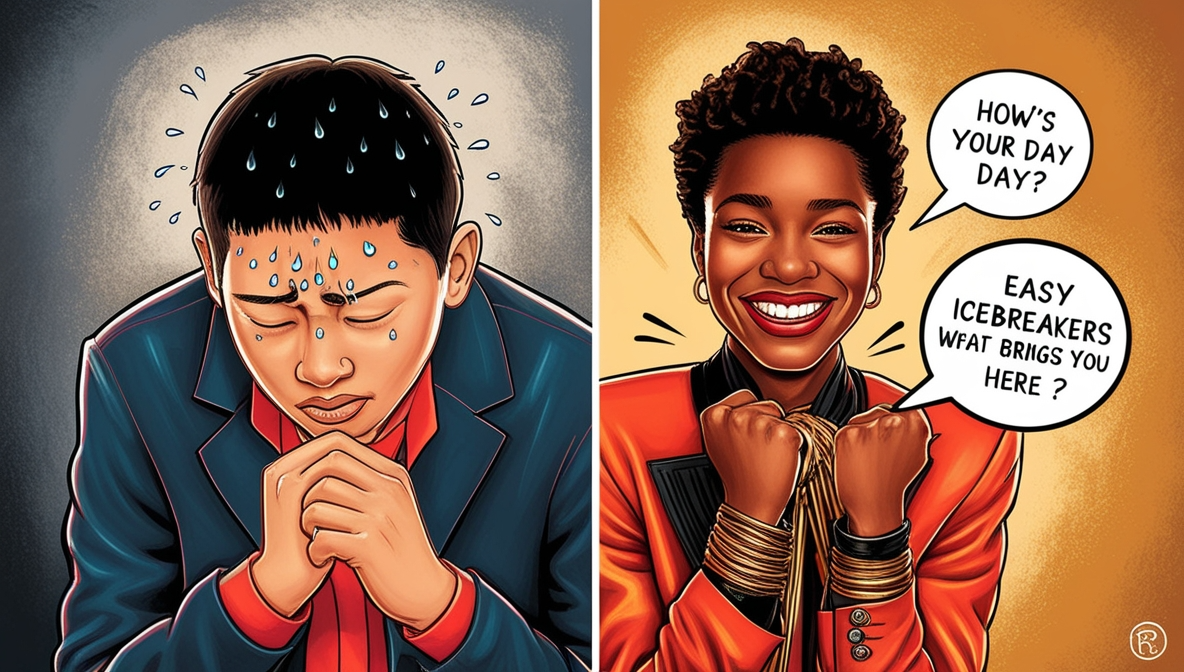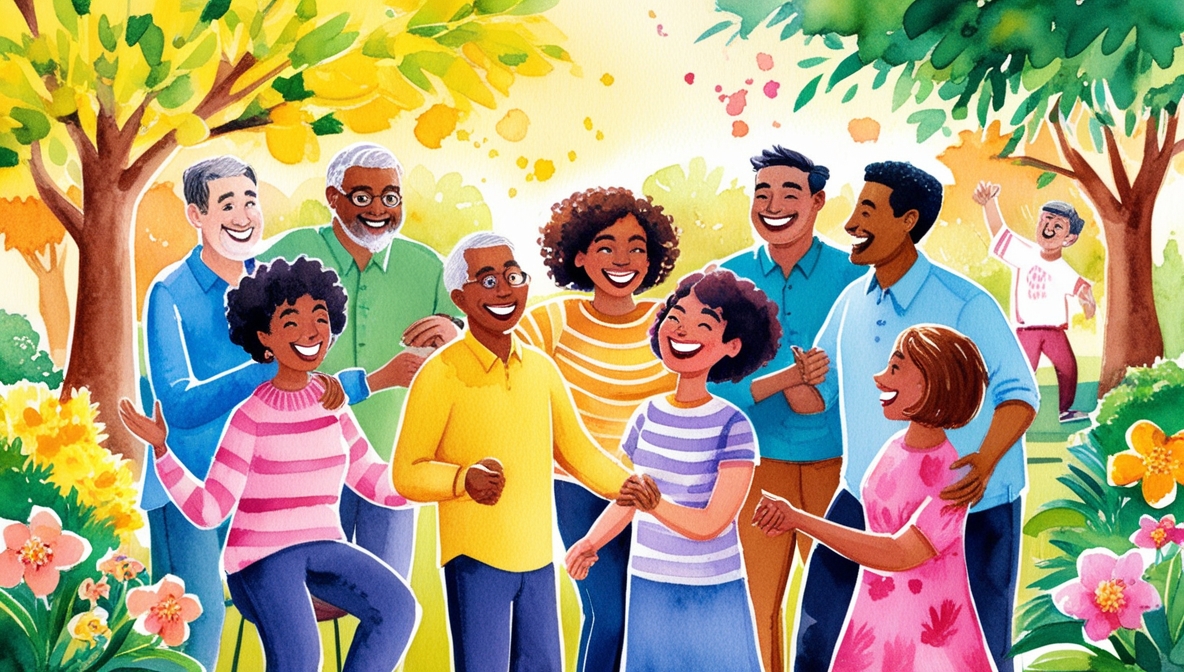Loneliness can feel like a heavy backpack you can’t take off. I know because I’ve been there. I sat alone at lunch in middle school, watching other kids laugh and share stories. I wanted to be part of a group and have good friends who got me. Maybe you feel the same way now.
But here’s the thing: making friends doesn’t have to be hard. It’s a skill we can all learn, no matter how shy or awkward we feel. This guide is for anyone who’s ever felt left out or unsure how to start talking to new people. Whether you’re in a new city or just want to grow your social circle, I’m here to help.
Friendship isn’t just nice; it’s a big part of a full life. Good friends can make you laugh when you’re sad, cheer you on when things get tough, and help you become the best version of yourself. They’re the family we chose.
This guide will go through simple steps to help you make friends and build strong friendships. We’ll talk about how to meet people, start conversations, and turn those first hellos into lasting friendships. You don’t need to change who you are or pretend to be someone else. The right friends will like you for you.
So, let’s get started on this journey together. By the end, you’ll have the tools to create the friendships you’ve always wanted. Remember, every best friend started as a stranger. Your next great friendship could be just around the corner.
Understanding Friendship

What Makes a Good Friend
A good friend is someone you can trust and feel comfortable with. They:
Show real interest in your life and feelings
Accept you for who you are
Listen without judging you
Share things about themselves, too
Good friends support each other. They’re there when you need them, even if it’s just to listen.
Benefits of Having Friends
Friendships are important for your health and happiness. Here’s why:
They help you feel less lonely
Friends can make you feel calmer
They can help you make good choices about your health
Friends can teach you new things about yourself
Healthy friendships are linked to better cardiovascular health, lower blood pressure, less depression, and a longer life.
Having even a few close friends can make a big difference in your life.
Common Misconceptions About Making Friends
Some people think the wrong things about making friends. Let’s fix those ideas:
You don’t need lots of friends to be happy. It’s about having good friends, not many friends
You don’t have to talk to friends every day to stay close
Friends don’t have to share everything. It’s okay to have some secrets
You can make new friends at any age. It’s not just for kids
Remember, friendship is about being there for each other, having fun, and feeling connected.
Self-Reflection

Knowing Yourself
Knowing yourself is the first step to making friends. It means:
Understanding what you like and don’t like
Knowing how you feel in different situations
Thinking about your strengths and things you want to improve
When you know yourself better, finding friends who get you is easier.
Identifying Your Interests and Values
Your interests and values are important. They help you:
Find people who like the same things
Know what’s important to you in a friendship
Choose activities you enjoy doing with others
Make a list of things you like to do. Think about what matters most to you. This can help you find friends who share your interests.
Setting Realistic Expectations
Having realistic expectations about friendships is key. Remember:
Not every person you meet will become a close friend
Good friendships take time to grow
It’s normal to feel nervous when meeting new people
Everyone makes mistakes sometimes – that’s okay
Don’t expect to have a best friend right away. Focus on making small connections and let friendships grow naturally. Initiating new connections can be rewarding despite the initial fears and challenges.
Remember, making friends is a skill you can learn. Be patient with yourself and keep trying. Every friendship starts with a simple “hello.”
Finding Opportunities to Meet People

Joining Clubs or Groups
Joining clubs or groups is a great way to meet people who like the same things as you. You can:
Look for local groups that match your interests
Join a book club if you love reading
Try a running club if you enjoy exercise
Find a group for a hobby you want to learn
When you join a group, you’ll meet people who already share something with you. This makes it easier to start talking.
Attending Events
Going to events in your area can help you meet new people. Try these ideas:
Go to local festivals or fairs
Check out free concerts in parks
Visit art shows or markets
Attend talks or workshops about topics you like
Remember, other people at these events might be looking to make friends too.
Volunteering
Volunteering is a great way to meet people and help others simultaneously. You can:
Help at an animal shelter if you love pets
Join a community clean-up if you care about the environment
Help at a food bank to support your community
Volunteering involves working with others who care about the same things.
Using Social Media and Apps
Social media and apps can help you find and meet new people. Here’s how:
Join Facebook groups about things you like
Use apps made for meeting friends in your area
Follow local accounts on Instagram to learn about events
Making friends online can be comfortable but may also present challenges. Be mindful of maintaining a balanced and healthy online friendship.
Be safe when meeting people online. Always meet in public places first.
Remember, making friends takes time. Keep trying different ways to meet people. The more you try, the more likely you will make new friends.
Starting Conversations

Overcoming Shyness
Being shy can make it hard to talk to new people. Here are some tips to help:
Start small. Say “hi” to someone in line at the store
Practice talking to yourself in the mirror
Remember that other people might feel shy, too
Take deep breaths to help you feel calmer
Make eye contact and smile to create a positive effect and make the conversation feel more comfortable
The more you try, the easier it gets to start talking to others.
Simple Conversation Starters
Here are some easy ways to start a conversation:
Ask about the weather: “Nice day, isn’t it?”
Comment on something around you: “This park is so pretty.”
Ask for help: “Can you tell me where the library is?”
Give a compliment: “I like your shirt.”
These simple first steps can help you meet new people.
Listening Skills
Being a good listener is key to making friends. Try these tips:
Look at the person when they’re talking
Nod your head to show you’re paying attention
Ask questions about what they said
Don’t interrupt
When you listen well, people feel good talking to you. This helps build connections.
Remember, everyone feels nervous sometimes when talking to new people. It’s okay to feel that way. Keep trying, and starting conversations and making friends will get easier.
Building Connections

Consistency in Interactions
To build strong connections, it’s important to keep in touch regularly:
Try to talk to your new friends often
Set up times to meet regularly, like every week
Send short messages to say hi between meetings
When you spend time with someone often, your friendship can grow stronger. Consistency helps develop a new friendship, turning initial interactions into regular and strong connections over time.
Sharing Personal Stories
Telling others about yourself helps create closer friendships:
Start with small stories about your day
Share things you like or don’t like
Talk about funny things that happened to you
When you open up, others often do the same. This helps you get to know each other better.
Offering Help and Support
Being there for others is a big part of friendship:
Ask if your friend needs help with something
Listen when they want to talk about problems
Offer to do small favors, like bringing soup when they’re sick
When you help others, they’re more likely to help you, too. This makes your friendship stronger.
Remember, building good connections takes time. Be patient and keep trying. Every small act of kindness or moment of sharing helps create better friendships.
Nurturing Friendships

Regular Communication
Keeping in touch often is key to strong friendships:
Try to talk to your friends at least once a week
Send quick messages to say hi or share funny things
Use video calls if you can’t meet in person
Regular contact helps keep friendships strong, even when you’re busy. It also helps nurture relationships and turn good friends into true friends.
Planning Activities Together
Doing fun things with your friends helps your friendship grow:
Plan to meet regularly for something you both like
Try new things together, like a cooking class
Have movie nights or game nights at home
When you do fun stuff, you make good memories with your friends.
Being There in Times of Need
Good friends help each other when things are tough:
Listen when your friend is sad or worried
Offer to help with small tasks if they’re having a hard time
Check-in on them if you know they’re going through something hard
Being there when your friend needs you shows you care. This makes your friendship stronger.
Remember, good friendships need care to grow. Keep talking, have fun together, and be there for each other. This helps build lasting friendships that make life better.
Overcoming Challenges

Dealing with Rejection
Getting turned down when trying to make friends can hurt. Here’s how to handle it:
Remember that rejection doesn’t mean you’re a bad person
Try not to take it personally – the other person might be busy or shy
Keep trying to meet new people – not everyone will be a good match
Focus on the friends you already have
Remember to be comfortable in your skin and not take rejection personally.
It’s okay to feel sad, but don’t give up. There are lots of people who might want to be your friend.
Managing Conflicts
Even good friends sometimes have problems. Here’s what to do:
Talk to your friend about what’s bothering you
Listen to their side of the story
Try to find a solution that works for both of you
Say sorry if you did something wrong
Solving problems together can make your friendship stronger.
Balancing Friendships with Other Life Commitments
It can be hard to make time for friends when you’re busy. Try these tips:
Set aside some time each week for your friends
Invite friends to do things you need to do anyway, like grocery shopping
Be honest with your friends about your schedule
Remember that good friends will understand if you’re busy sometimes
You don’t have to spend all your time with friends but try to keep in touch regularly.
Remember, everyone faces challenges in friendships. It’s normal and okay. Keep trying, be kind to yourself and others, and you’ll find ways to make and keep good friends.
Conclusion

Recap of Key Points
Let’s remember the main things we’ve learned about making friends:
Know yourself and what you like
Find places to meet people with similar interests
Start small conversations and be a good listener
Keep in touch regularly and share parts of your life
Be there for your friends in good times and bad
Don’t give up if things get tough
These steps can help you build strong friendships.
Encouragement to Take Action
Now it’s time to use what you’ve learned:
Pick one thing from this guide to try this week
Set a small goal, like saying hi to someone new
Remember, every friendship starts with a simple step
Don’t worry if it feels awkward at first – that’s normal
You can do this! Every friend you have now was once a stranger.
Final Thoughts on the Value of Friendship
Friendships are one of life’s greatest gifts:
Good friends make life more fun and meaningful
They support us when things are hard
Friends help us learn and grow as people
Having friends can make us healthier and happier
Remember, you deserve good friendships. It might take time, but it’s worth the effort.
Making friends is a journey, not a race. Be patient with yourself and keep trying. Every small step counts. You never know – your next great friendship could start with the very next person you meet. So go out there, be yourself, and start making those connections. Your future friends are waiting to meet you!







Leave a Reply